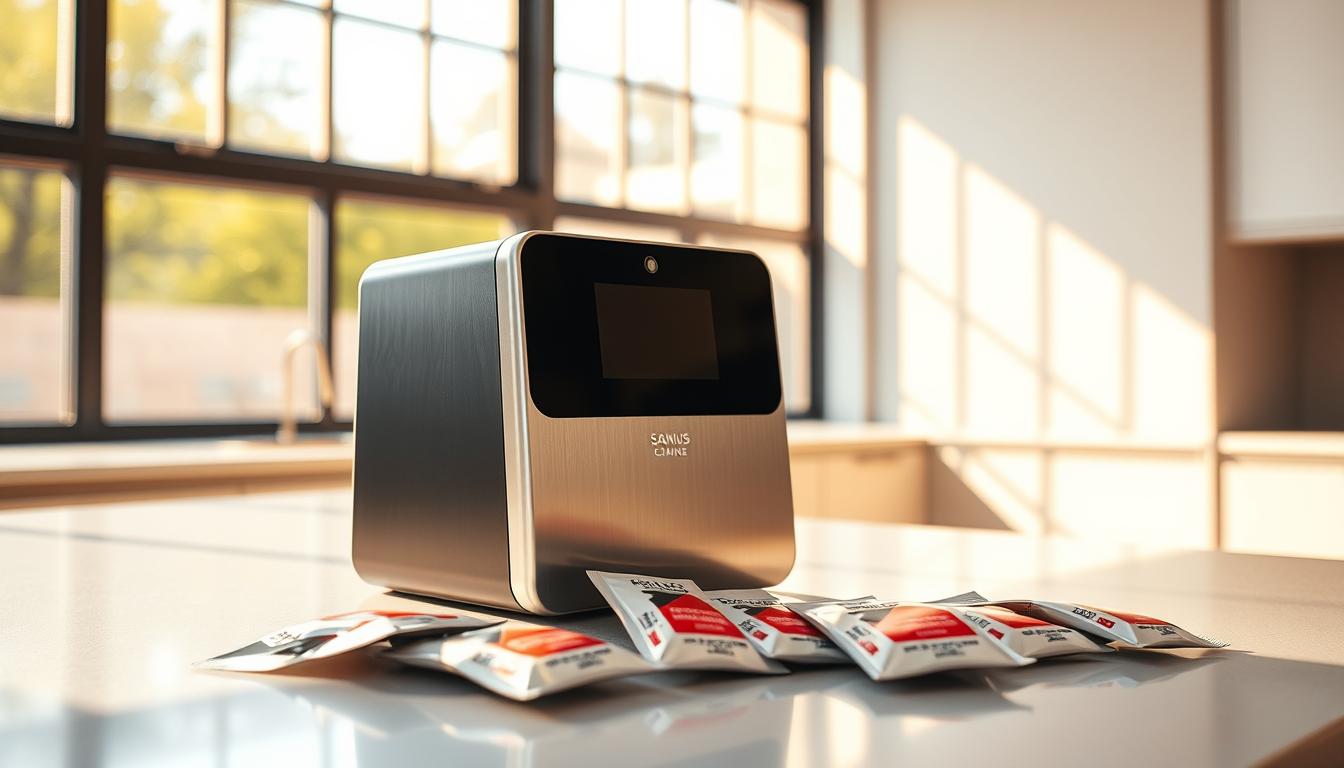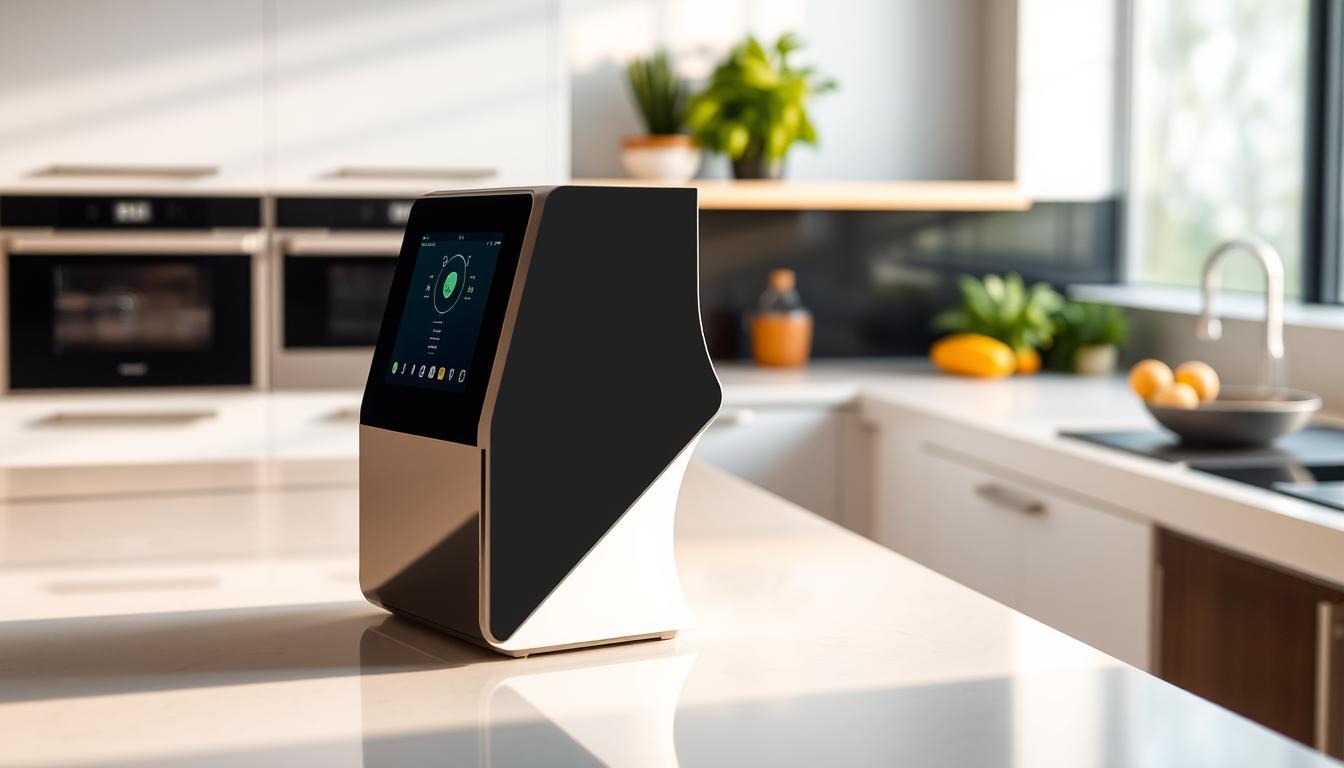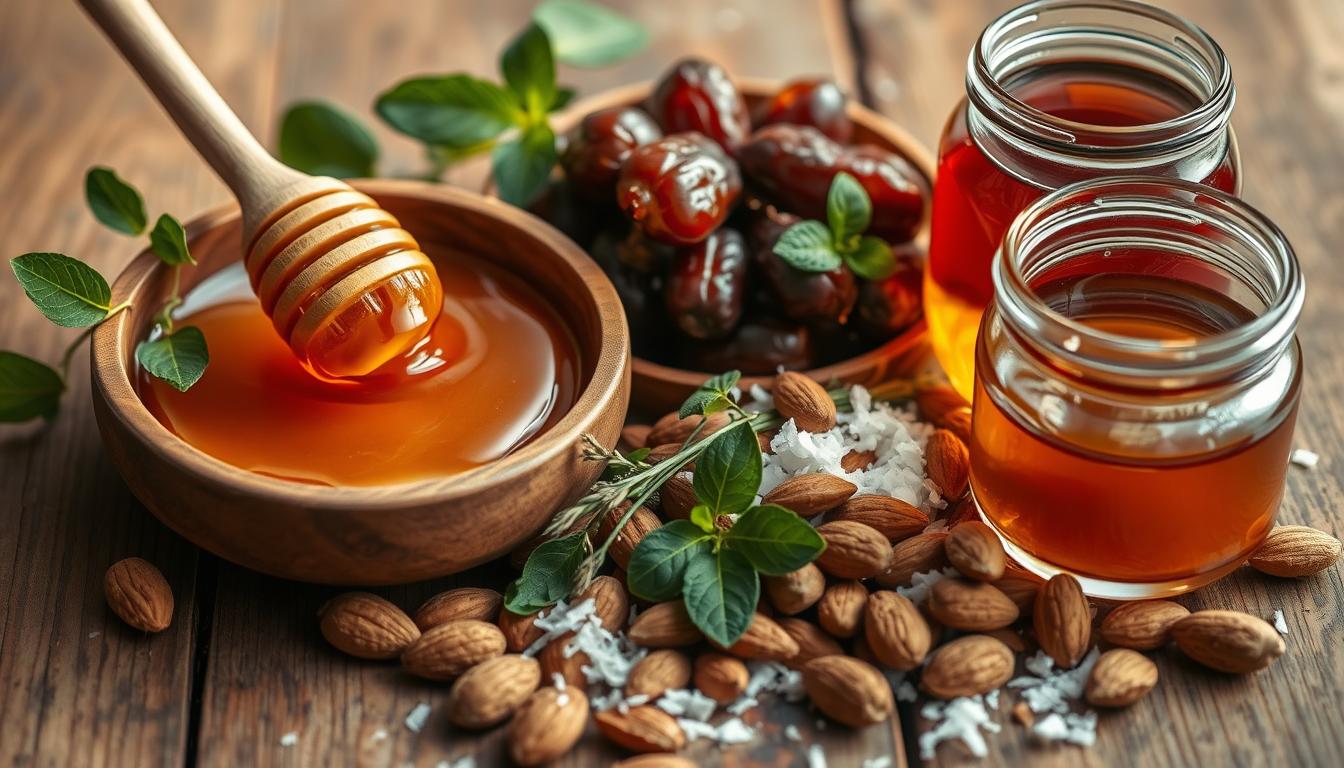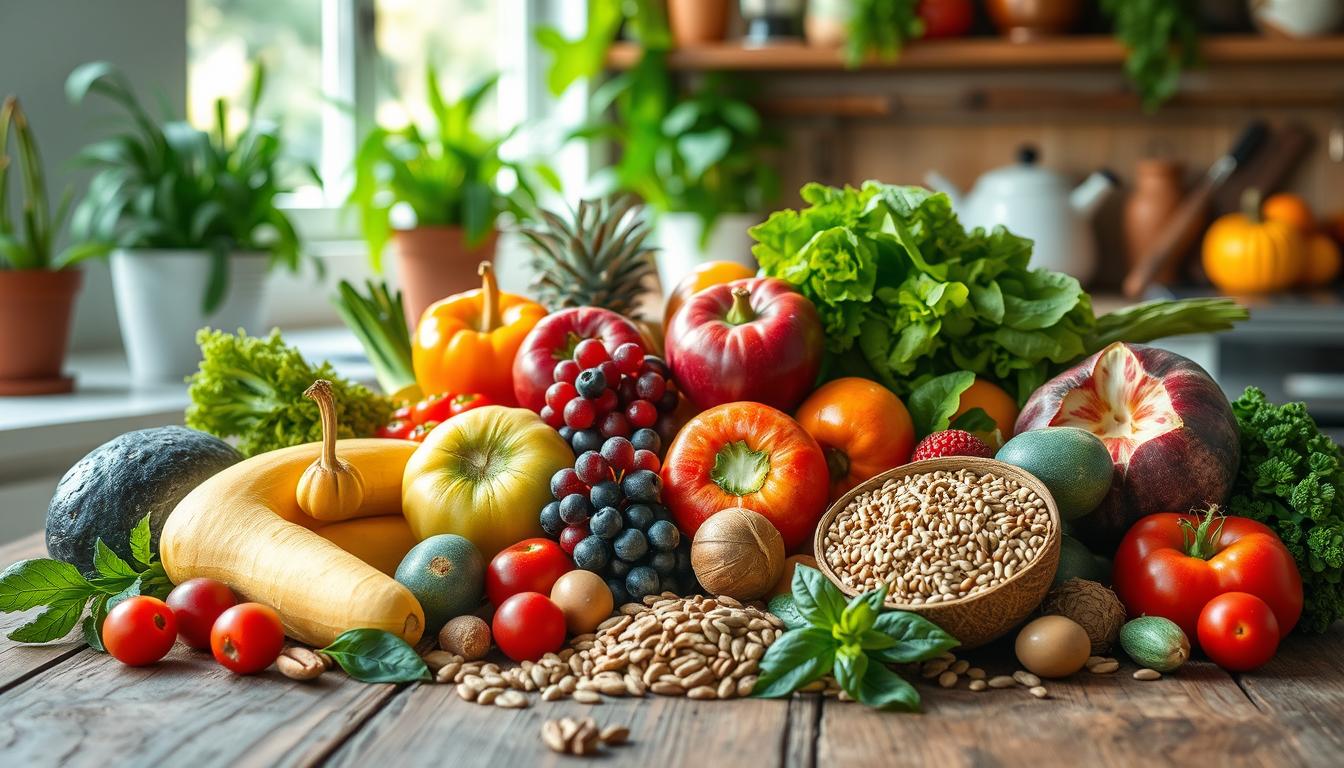Dietitian’s Best Sugar Swaps to Cut Back on Sugar “Without Noticing” – Benefits for Allergy Management and Nutrition Originally reported by The Mirror, leading dietitians reveal simple sugar swaps you can make today. These sugar swaps not only help reduce added sugar intake, they also support healthier immune and inflammatory responses—critical for those managing food allergies. Key Takeaways Simple sugar swaps can reduce added sugar by up to 30%. Lowering sugar intake may decrease inflammation linked to allergic reactions. Whole-food swaps (fruit, nuts, seeds) boost nutrition and fiber. Using apps like Food Scan Genius helps identify hidden sugars and allergens. Practical tips and authoritative resources guide safe adoption of sugar swaps. Background: Sugar Intake and Its Link to Allergic Inflammation Over the past decade, average daily consumption of added sugars has skyrocketed. According to the CDC, the average American adult consumes roughly 17 teaspoons of added sugar per day—far above the recommended limit of 6–9 teaspoons. High added sugar intake is associated with: Elevated systemic inflammation Impaired immune function Worsened symptoms in individuals with allergic diseases Inflammation and food allergies often share the same pathways. Excess sugar can drive histamine release, exacerbate eczema, and increase nasal congestion in allergic rhinitis. Therefore, sugar swaps are not only a nutrition strategy but also a complementary approach for allergy management. Medical and Scientific Explanation From a mechanistic standpoint, refined sugars trigger rapid blood glucose spikes, which in turn activate pro-inflammatory cytokines. Over time, this promotes a chronic low-grade inflammatory state. How Sugar Fuels Inflammation High glucose levels stimulate interleukin-6 (IL-6) and tumor necrosis factor-alpha (TNF-α). Oxidative stress increases, weakening gut barrier function. “Leaky gut” allows antigens to cross the intestinal wall, heightening immune reactivity—common in food allergies. Authoritative Evidence Mayo Clinic: Sugar and inflammation link NIH/NIDDK: Effects of added sugar on metabolic health Food Allergy Research & Education (FARE): Allergy mechanisms focus Impact on Individuals with Food Allergies For allergy sufferers, dietary sugar can be more than a weight-gain concern. It’s a contributor to histamine release: Increased sugar leads to higher blood glucose and insulin response. Insulin spikes stimulate mast cell degranulation, releasing histamine. Symptoms like hives, itching, and gastrointestinal upset may intensify. Studies show that people with food allergies often report worse eczema flares on high-sugar diets. By implementing sugar swaps, you can: Mitigate chronic itch and skin barrier breakdown. Reduce nasal congestion in allergic rhinitis. Improve energy and mood by stabilizing blood sugar. Practical Advice: Top Sugar Swaps for Allergy-Friendly Nutrition Adopting simple sugar swaps can be done one meal at a time. Below is a table comparing popular high-sugar ingredients with healthier swaps: Traditional Ingredient Sugar per Serving Swap Option Sugar per Serving Key Benefits Granulated White Sugar (1 tbsp) 12.6 g Mashed Banana (¼ cup) 6.4 g Potassium, fiber, natural sweetness Honey (1 tbsp) 17.3 g Unsweetened Applesauce (¼ cup) 11.4 g Vitamin C, hydrating Maple Syrup (1 tbsp) 14 g Pureed Dates (2 med.) 12 g Iron, magnesium, antioxidants Sugary Granola (½ cup) 12 g Oats + Nuts + Seeds 1–2 g (no added sugar) Protein, healthy fats, fiber Meal-by-Meal Swap Tips Breakfast: Replace flavored yogurt with plain Greek yogurt + fresh berries. Snack: Trade candy bars for homemade trail mix (nuts, seeds, dried fruit). Dessert: Use cacao nibs and crushed nuts instead of chocolate chips in cookies. Beverages: Infuse water with citrus or cucumber slices instead of soda. How Food Scan Genius Supports Your Sugar Swap Journey Food Scan Genius is a mobile app that uses barcode scanning and AI to: Identify added sugars and hidden sweeteners Flag common allergens (nuts, dairy, soy, gluten) Suggest lower-sugar, allergen-safe alternatives in real time By integrating Food Scan Genius into your grocery runs, you’ll make informed choices and seamlessly implement sugar swaps without guesswork. Related Food Allergy Research and Developments Recent studies underscore the link between diet, microbiome health, and allergy risk. Key findings include: A JACI study associating high sugar intake with elevated gut permeability in children. NIH-sponsored research exploring how dietary fiber from fruit reduces allergic asthma severity. FARE-funded trials testing the effect of low-sugar elimination diets on eczema outcomes. Emerging therapies also focus on modifying the gut microbiota via prebiotic-rich foods—another reason to favor whole-food sugar swaps like fruits and seeds. Resources and Support Food Allergy Research & Education (FARE) CDC Food Allergy Information Mayo Clinic: Food Allergy Overview Frequently Asked Questions 1. What are the easiest sugar swaps to start with? Begin by swapping sweetened beverages for infused water and using mashed banana or unsweetened applesauce in baking. These quick changes cut added sugar without sacrificing taste. 2. Can reducing sugar really help with my food allergy symptoms? Yes. Lowering added sugar intake can reduce systemic inflammation and histamine release, often leading to milder allergy symptoms like hives and congestion. 3. How does Food Scan Genius detect hidden sugars? The app scans barcodes and uses a comprehensive database to flag all forms of added sugars, including syrups and sugar alcohols, helping you choose lower-sugar options. 4. Are natural sweeteners like honey or maple syrup a better choice? While these alternatives offer minor nutritional benefits (antioxidants, minerals), they still count as added sugars. Aim for whole-food swaps like fruit purees when possible. 5. Where can I find more allergy-safe, low-sugar recipes? Check reputable sites like Mayo Clinic’s healthy recipes section or FARE’s recipe database for ideas that combine low sugar with allergen-free ingredients. Conclusion: Actionable Takeaways Incorporating sugar swaps is a sustainable way to cut back on added sugars, reduce inflammation, and support allergy management. Start small—swap one ingredient at a time, use Food Scan Genius for guidance, and explore whole-food alternatives. Over weeks, you’ll notice fewer sugar cravings, steadier energy, and potentially milder allergic reactions. Begin your sugar swap journey today!
Analyze Artificial Sweeteners Quickly with Our New Scanner
Discover hidden artificial sweeteners in your food with our innovative artificial sweetener scanner. Make informed choices about your diet and protect your health instantly
Top-Rated Sugar-Free Scanner: Effortless Cooking Companion
Discover the ultimate sugar-free scanner that helps you make healthier food choices. Find hidden sugars in products, track ingredients, and enjoy peace of mind while shopping and cooking
Natural Sugar Alternatives: Best Options for Health
Do you love sweet treats but worry about their health effects? You’re not alone. The search for natural sugar alternatives is on the rise. This is because of growing concerns about diabetes and obesity. But don’t worry, we’re about to find the best natural sweeteners. They’ll make your desserts delicious without harming your health. Want to enjoy your favorite sweets without feeling guilty? It’s possible. We’ll look at plant-based sweeteners that are tasty and good for you. They’re packed with nutrients and health benefits. Key Takeaways Discover a variety of natural sugar alternatives that are better for your health Learn about the health risks of excessive sugar consumption and the growing need for healthier options Explore the unique properties and benefits of popular plant-based sweeteners like stevia, monk fruit, and yacon syrup Understand the importance of glycemic index and its impact on blood sugar levels Discover how to incorporate natural sweeteners into your baking and cooking for delicious, guilt-free treats Understanding the Need for Sugar Alternatives In today’s fast world, sugar is everywhere. It’s in sweet drinks and processed snacks. But too much sugar can harm our health in big ways. Health Risks of Excessive Sugar Consumption Too much sugar can cause weight gain, diabetes, heart disease, and even cancer. Low-calorie sweeteners and sugar substitutes are better choices. They let us enjoy sweet tastes without the health risks. Rising Diabetes and Obesity Concerns Diabetes and obesity are becoming more common. Many people are affected. The need for zero-calorie sweeteners and healthier options is urgent. The Growing Demand for Healthier Options More people want natural, low-calorie sugar alternatives. They’re looking for sugar substitutes that are good for them. This shows how much we value our health. “The rise in diabetes and obesity rates has sparked a growing interest in finding healthier, low-calorie sweeteners that can replace traditional sugar in our diets.” The need for sugar alternatives is clear. We’ll look into natural and low-calorie sweeteners. They can change how we enjoy our favorite treats. Popular Natural Sweeteners from Plants Nature has amazing options for those who want to satisfy their sweet tooth without harming their health. Let’s explore three plant-based natural sweeteners: stevia, monk fruit, and yacon syrup. They’re making waves in the wellness world. Stevia and Its Benefits Stevia is a zero-calorie sweetener made from Stevia rebaudiana leaves. It’s different from artificial sweeteners because it’s calorie-free and has health perks. It helps keep blood sugar levels healthy, which is great for those with diabetes. Stevia is also packed with antioxidants. These help protect the body from harmful free radicals. Monk Fruit Extract Properties Monk fruit extract is a sweetener from the monk fruit, or luo han guo. It’s incredibly sweet, up to 200 times sweeter than sugar, but has no calories or carbs. It’s known for boosting the immune system and helping with weight management. Yacon Syrup Benefits Yacon syrup comes from the yacon plant’s roots, a sunflower relative. It’s a sweet, thick liquid with a low glycemic index. This makes it perfect for keeping blood sugar levels stable. Yacon syrup is also full of fructooligosaccharides (FOS), a fiber that’s good for the gut and bowel health. Looking for a sweetener that’s good for diabetes, your gut, or just your sweet tooth? These plant-based natural sweeteners are worth trying. Stay tuned for more on natural sugar alternatives and their benefits! Sugar Alternatives: Complete Guide to Zero-Calorie Options Want to cut down on sugar but still enjoy sweet treats? We’ve got you covered! We’re exploring zero-calorie sweeteners, also known as non-nutritive or artificial sweeteners. These options are great for those watching their weight or managing health issues like diabetes. We’ll look at different types, their benefits and drawbacks. You’ll learn how to enjoy your favorite foods without the guilt! Natural Zero-Calorie Sweeteners First, let’s talk about plant-based wonders. These natural sweeteners offer a sweet fix without the calories. Here are some popular ones: Stevia – This sweetener, from the stevia plant, is up to 300 times sweeter than sugar. It’s perfect for baking and drinks. Monk Fruit Extract – Known as “lo han guo,” this sweetener is zero-calorie and has antioxidants. Erythritol – A sugar alcohol found in fruits and fermented foods, it barely affects blood sugar. Artificial Zero-Calorie Sweeteners There are also artificial sweeteners available. Here are some common ones: Aspartame – Used in diet sodas, gum, and low-calorie foods, it’s one of the most common. Saccharin – Discovered over a century ago, it’s 300 times sweeter than sugar and used in many low-calorie products. Sucralose – Made from sugar, it’s a zero-calorie sweetener used in baked goods, drinks, and some medications. Sweetener Calorie Content Pros Cons Stevia 0 calories Natural, no impact on blood sugar May have a bitter aftertaste for some Monk Fruit Extract 0 calories Natural, antioxidant properties Can be more expensive than other options Aspartame 0 calories Widely available, no impact on blood sugar Potential concerns about safety for some individuals Choosing between natural and artificial sweeteners is a personal decision. Always talk to your healthcare provider, especially if you have health conditions. They can help find the best sweetener for you. Honey and Maple Syrup as Natural Substitutes Raw honey and pure maple syrup are nature’s sweetest gifts. They taste great and are full of nutrients. These golden wonders can boost your health and wellbeing. Nutritional Benefits of Raw Honey Raw honey is a superfood, full of essential nutrients and antioxidants. It keeps its natural enzymes, vitamins, and minerals, unlike processed honey. It’s known for its antibacterial properties and can soothe sore throats and improve gut health. Pure Maple Syrup Properties Maple syrup comes from maple tree sap. It’s a pure maple syrup option for those avoiding refined sugars. It’s rich in minerals like manganese, zinc, and calcium. Plus, it has a low glycemic index, good for blood sugar control. Nutrient Raw Honey Pure Maple Syrup Carbohydrates 17g per tablespoon 52g per 1/4 cup Calories 64 per tablespoon 206 per 1/4 cup Vitamins and
Sugar-Free Diet: A Complete Guide to Healthy Living
Ever thought a sugar-free diet could change your health? Let’s explore the secrets of this new way of eating. We’ll look at the science, benefits, and how to start a sugar-free life. This will help you achieve vibrant, lasting health. Key Takeaways Discover the profound impact of sugar on your overall health and wellness Learn why people are choosing to eliminate sugar from their diets Understand the science-backed benefits of a sugar-free diet Gain practical tips for transitioning to a sugar-free lifestyle Explore natural sugar substitutes and alternatives to satisfy your sweet cravings Discover how to manage sugar withdrawal and overcome common challenges Uncover the power of technology to simplify your sugar-free journey Ready to start a journey to a healthier, sugar-free you? Let’s dive in and find out how this diet can change your life! Understanding the Sugar-Free Diet Revolution In recent years, the sugar-free diet has become very popular. People want to improve their health and wellbeing. Let’s explore the science behind sugar’s impact and why more people are choosing this lifestyle. We’ll also clear up some common misconceptions about sugar-free living. The Science Behind Sugar’s Impact on Health Too much sugar can lead to weight gain, type 2 diabetes, and heart disease. Our bodies have trouble managing blood sugar levels when we eat too much sugar. This can cause insulin resistance and metabolic problems. Cutting out added sugars can improve our health and energy. Why People Choose Sugar-Free Living Improved weight management and reduced risk of obesity Better blood sugar control and reduced risk of type 2 diabetes Increased energy and mental clarity Reduced inflammation and improved overall well-being Common Misconceptions About Going Sugar-Free Many think a sugar-free diet means giving up flavor and eating bland foods. But this isn’t true. With the right recipes and ingredients, a sugar-free diet can be delicious and fulfilling. It’s key to know that natural sugars in fruits and whole grains are different from added sugars in processed foods. “A sugar-free diet isn’t about depriving yourself – it’s about nourishing your body with whole, natural foods that fuel your health and wellbeing.” Understanding sugar’s impact and the benefits of a sugar-free lifestyle can lead to a healthier future. Are you ready to join the sugar-free revolution? Health Benefits of Eliminating Sugar from Your Diet Starting a sugar-free lifestyle can bring many health benefits. Cutting out added sugars helps with diabetes management and weight loss. It also boosts your overall health. One big plus of a sugar-free diet is how it helps control blood sugar. Eating less refined carbs and added sugars stabilizes blood glucose. This makes managing type 2 diabetes easier, leading to more energy, better mood, and fewer health risks. Also, a sugar-free diet aids in weight loss. It removes empty calories from sugary foods and drinks. This helps you eat fewer calories and manage your weight better. Plus, you’ll have less insulin spikes and sugar cravings, making it easier to eat healthy. Improved blood sugar regulation and diabetes management Increased energy levels and enhanced mood Sustainable weight loss and management Reduced risk of chronic diseases Healthier skin and reduced inflammation Removing sugar also improves your overall health. A sugar-free diet lowers the risk of heart disease, some cancers, and Alzheimer’s. It also makes your skin healthier by reducing inflammation and improving its barrier function. “Eliminating sugar from my diet has been a game-changer for my health. I’ve experienced more stable energy levels, clearer skin, and better management of my diabetes. It’s a simple change that has made a profound difference in my life.” Choosing a sugar-free diet is a big step towards better health. By avoiding added sugars, you get many benefits. These benefits improve your daily life and long-term health. Getting Started with a Sugar-Free Diet Ready to start your sugar-free journey? We’ve got everything you need! First, let’s get your kitchen ready for success. A few simple changes can help you easily switch to a healthier lifestyle. Preparing Your Kitchen for Success Begin by getting rid of sugary snacks, sodas, and processed foods. Replace them with sugar-free alternatives like fresh fruits, veggies, nuts, and healthy proteins. Having these options ready will make it easier to follow your sugar-free diet. Essential Shopping List Fresh produce (berries, leafy greens, vegetables) Lean proteins (chicken, fish, eggs) Healthy fats (avocados, olive oil, nuts, seeds) Whole grains (quinoa, brown rice, oats) Sugar-free sweeteners (stevia, erythritol, monk fruit) Herbs and spices for flavorful, sugar-free cooking Reading Food Labels Like a Pro Learning to read food labels is key for a sugar-free diet. Choose products with little added sugar and natural ingredients. Stay away from high-fructose corn syrup, sucrose, and other hidden sugars. With your kitchen ready and your label-reading skills improved, you’re set for a successful sugar-free diet. Adopt these healthy habits and you’ll soon feel full of energy and confidence! Natural Sugar Substitutes and Alternatives Goodbye to sugar, hello to sweetness! Exploring natural sugar substitutes can change your sugar-free life. These healthier options let you enjoy sweet treats without harming your health. Honey is a great choice. It’s full of antioxidants and has a lower sugar level than regular sugar. It’s perfect for baking and drinks. Maple syrup is another good pick. It tastes different and is full of vitamins and minerals. If you want something with no calories, try stevia or monk fruit. These plant-based sweeteners don’t raise blood sugar levels. They’re great for keeping an eye on your glycemic index. Substituting natural sweeteners for sugar is a great way to enjoy the flavors you love while supporting your health goals. But, be careful with artificial sweeteners. They might not be as healthy as they seem. They can mess with your metabolism and even make you want more sugar. Natural Sugar Substitute Glycemic Index Calorie Count Honey 58 64 calories per tablespoon Maple Syrup 54 52 calories per tablespoon Stevia 0 0 calories per teaspoon Monk Fruit 0 0 calories per teaspoon Try different natural sugar substitutes to find what








